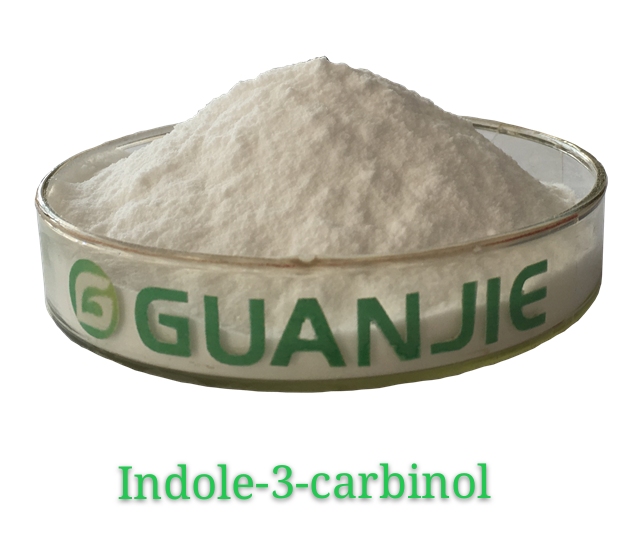Your present position: Home>> Product>> Product Details
Indole-3-carbinol
Indole-3-carbinol
Indole-3-carbinol:
Product Name: Indole-3-carbinol
Molecular Formula: C9H9NO
Molecular Weight: 147.17
CAS No.: 700-06-1
Einecs No.: 211-836-2
Product description:
Indole-3-carbinol is produced by the breakdown of the glucosinolate glucobrassicin, which can be found at relatively high levels in cruciferous vegetables such as broccoli, cabbage, cauliflower, brussels sprouts, collard greens and kale.
Indole-3-carbinol is also available in a dietary supplement. Indole-3-carbinol is the subject of on-going Biomedical research into its possible anticarcinogenic, antioxidant, and anti-atherogenic effects.
Research on indole-3-carbinol has been conducted primarily using laboratory animals and cultured cells. Limited and inconclusive human studies have been reported. A recent review of the biomedical research literature found that "evidence of an inverse association between cruciferous vegetable intake and breast or prostate cancer in humans is limited and inconsistent" and "larger randomized controlled trials are needed" to determine if supplemental indole-3-carbinol has health benefits.
Product benefits:
1.Indole-3-carbinol prevention and treatment of cancer;
2.Indole-3-carbinol may have an effect on human papillomavirus infected cells in both pediatrics and adult patients;
3.Indole-3-carbinol can anti-oxidant;
4.Indole-3-carbinol anticarcinogenic;
5.Indole-3-carbinol anti-atherogenic.
Product application:
1.Indole-3-carbinol may have an effect on human papillomavirus infected cells in both pediatrics and adult patients.
2.The primary use of dextromethorphan is as a cough suppressant, for the temporary relief of cough caused by minor throat and bronchial irritation (such as commonly accompanies the flu and common cold), as well as those resulting from inhaled particle irritants.
3.Pseudobulbar affect and other neuropsychiatric disorders.

